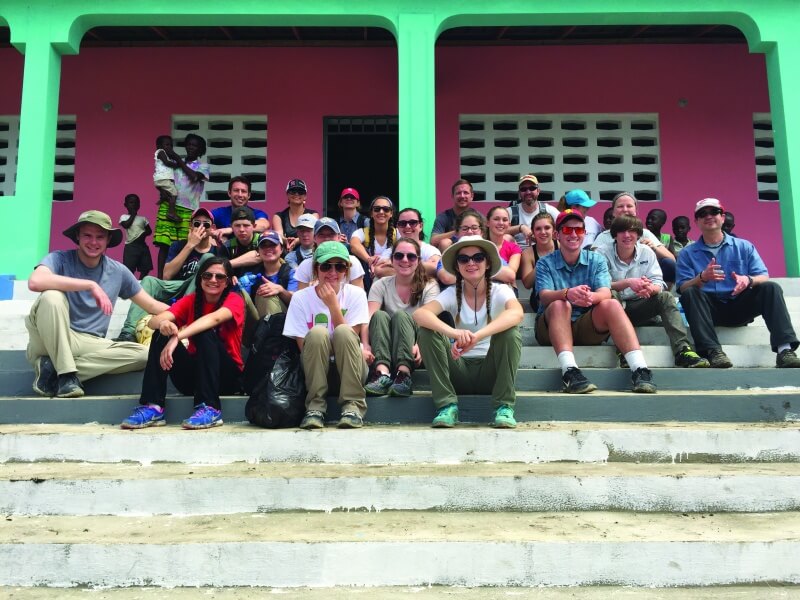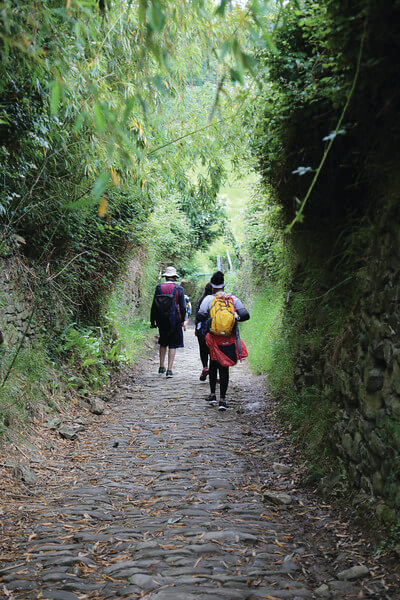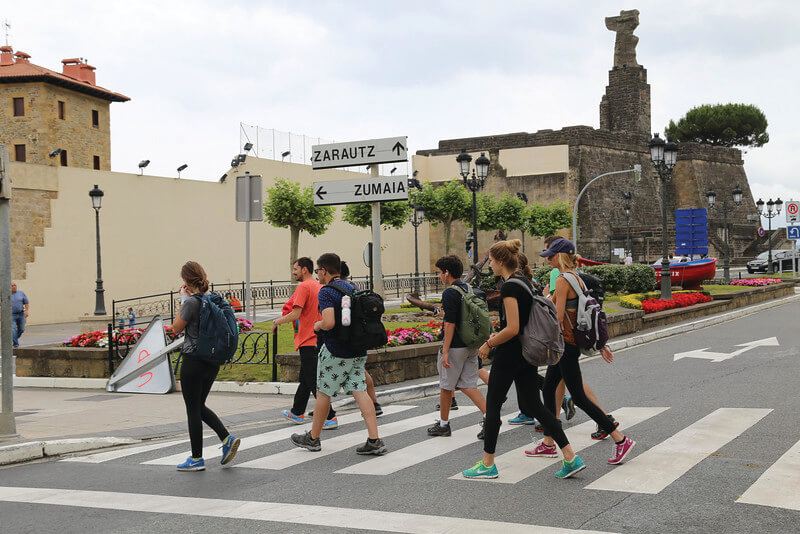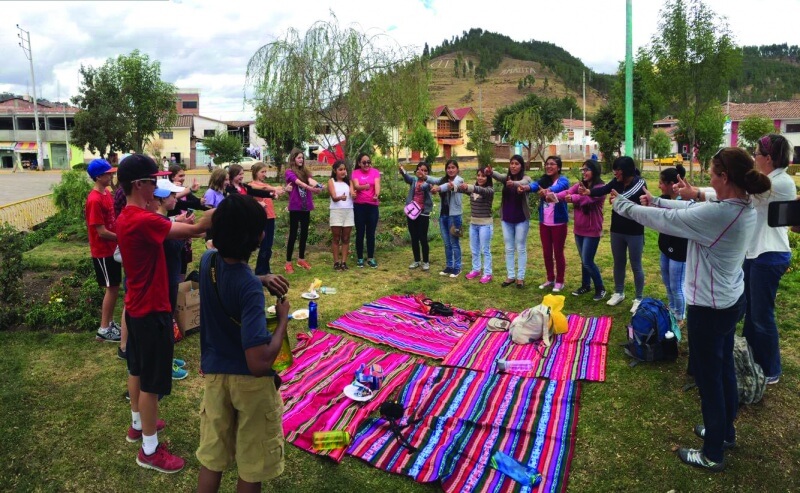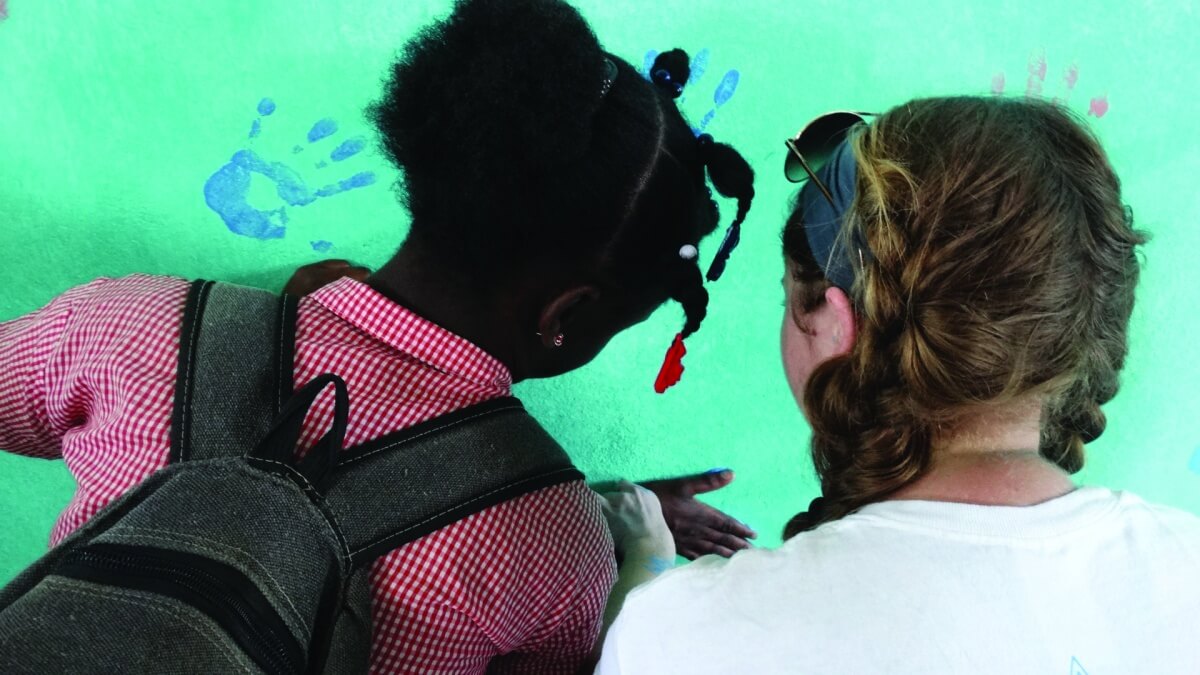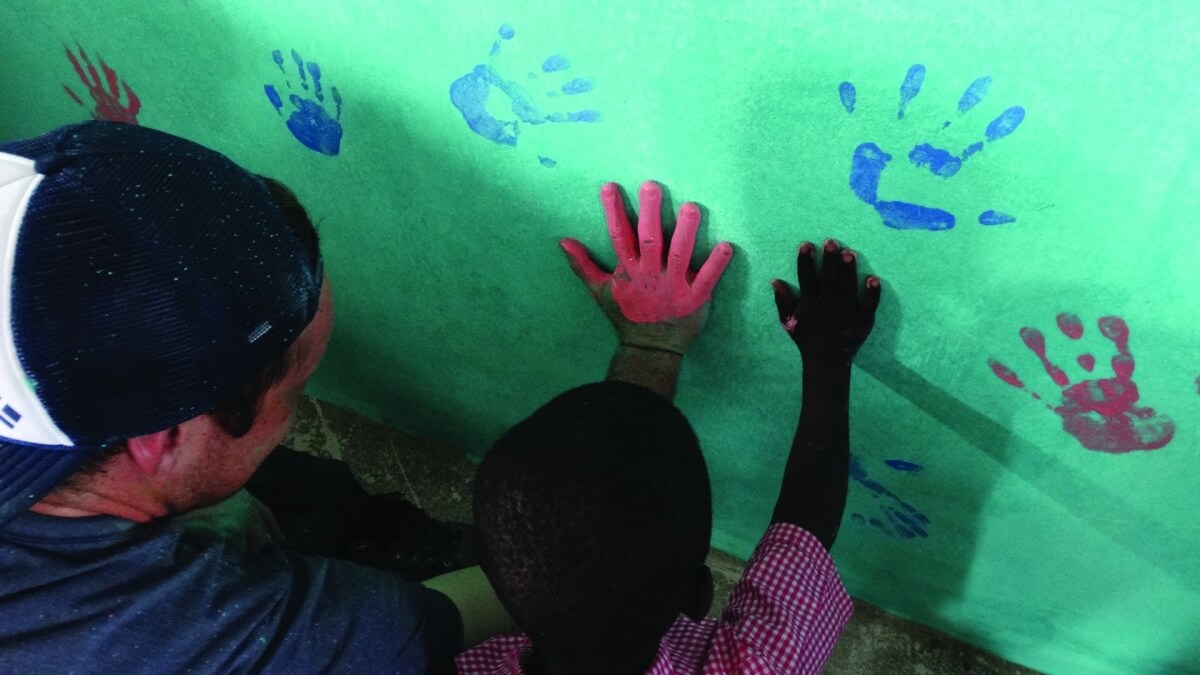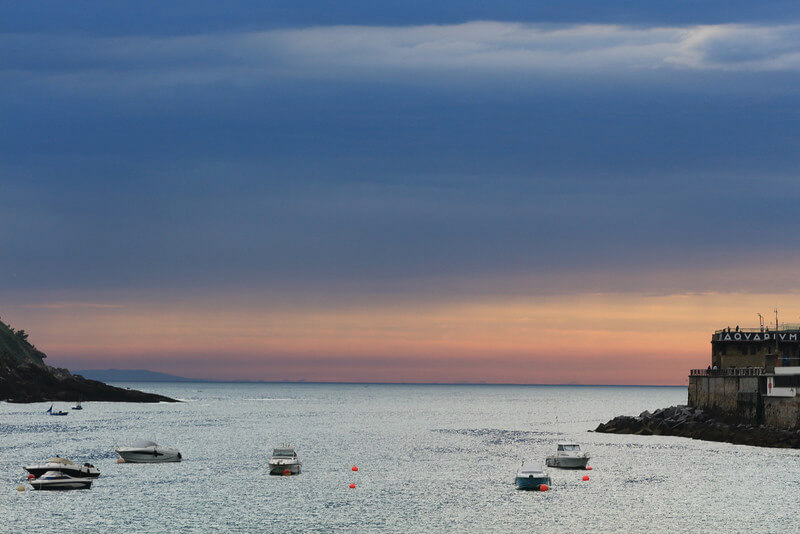Beginning in the Fifth Grade, Colorado Academy dusts off the luggage, prints the boarding passes, and checks to be sure that the toothbrush is packed—because that’s the class year when CA students may begin experiential education in faraway lands.
Daniel Lopez ’86, CA faculty member and Spanish Instructor, also heads the Global Travel and Exchange Program (GTE). He’s got a big broom; what he most likes to do is sweep students out the door.
“Some of our students are very well-traveled,” he says, “but their families go on pretty structured vacations. Then, a large number of our kids have never been outside of Denver. We’re trying to get all of them out of the bubble of campus and the family environment, push the comfort zone, and challenge them to take risks.
“We want our kids to leave CA with a global perspective,” says Lopez, “and we can’t do that just in the classroom.” Lopez, in fact, takes a global perspective about the importance of the program he oversees. “What has to happen in this world now,” he says, “is that people must make connections. CA is academically so strong; we encourage kids to make connections between what they are studying and what they see in their world.”
“You might assume that Cuba was primarily Latino. But it’s an array of different colors. It proved my theory about the African diaspora: you’ll see people in Cuba from very dark to white, interestingly functioning in a much different way than we do in the United States.”
But, Lopez emphasizes, bringing another world back to “their world” is even more important. “In my Spanish class, students can talk more meaningfully about Spanish culture if they have been there.”
“You can’t sit at a computer and learn about the world,” he says. “You have to go out into the world.”
GTE is keen not only on making intellectual connections, it also places a high priority on student visitors being part of community service wherever they go; on home-stays so that visitor and host alike construct life-long friendships; on students actually communicating—often in a foreign language—with the other person in the other culture.
“Immersion is not an academic subject,” says Lopez. “It’s about making relationships, not visiting sites. That is what helps it to become a transformative experience.”
CA students who have been part of CA’s travel program return home with some common experiences. Let’s group these into four:
What Happens There That Would Never Happen Here
Matthew MacPhail, Senior, was particularly happy to be in Scotland. “I’m of Scottish heritage,” says MacPhail. “I was interested in seeing older buildings; Denver just doesn’t have the same breadth, for me, of historical sites.”
“When we went to China,” says Senior Madeleine Smith, “I was wondering about the food. Well, I ate fried snake, scorpion, starfish.” Another takeaway for Smith: “I rarely go to a ranch or farm; rural life isn’t part of my everyday life. In China, I worked in fields, out in the country, on a farm with one ox and two piglets.”
Junior Zoriah Carter spent the summer of 2016 in New York City, taking a seminar on Harlem. But what turned her head about the black experience was a trip to Cuba, one of many countries that is part of CA’s Global Travel Program.
“You might assume that Cuba was primarily Latino,” says Carter. “But it’s an array of different colors. It proved my theory about the African diaspora: you’ll see people in Cuba from very dark to white, interestingly functioning in a much different way than we do in the United States.”
Stories That Mean More to the Heart Than to the Head
“The most meaningful moment for me in Haiti,” says Junior Charlie Wallace, “was when I saw the children not finishing their food. This was one of their only big meals of the week. I was so confused about why they were not finishing their food. I soon realized that it was because they were taking it back to their homes to share it with their siblings and the rest of their family.”
And if ever proof was necessary that sports unite across language, color or class, it is Senior MacPhail’s recounting of not speaking Spanish in Argentina, but still “speaking” soccer or Ping-Pong. “When you play games, you’re no longer an exchange student,” he says. “Something about playing a game makes you similar, makes you common. It’s shared experience.”
And “even though [she] went to Scotland when [she] was 11 years old,” tells Senior Madeleine Smith, she is still on Facebook with her Scottish friends, and “I talk almost once a day with my exchange partner from my host family in Argentina.”
Language as a Leg Up
“I think people should learn a few phrases before they travel to a foreign nation,” says Charlie Wallace. “At CA, I take Spanish and Chinese. For both of the trips [to Argentina and China] I have been on with CA, I have been able to have conversations with the locals.”
“Knowing phrases in the language helps earn respect, and people are more willing to have conversations with you. There were times when knowing pieces of the language made life easier, so I didn’t have to search for someone to translate for me.”
“Even though I got comfortable with my Spanish in Argentina,” says Smith, “Argentine Spanish is specific to Argentina, even to Buenos Aires. My host family taught me five or six ways to say ‘dude,’ from meaning a cute boy, to just person, to someone who cuts me off in traffic. So many different words for the same thing.”
Strong Impressions
“The media can portray an area,” says Wallace, “but it’s always better to experience it first-hand.”
“We have a way of demonizing Muslims in this country,” says Zoriah Carter. “But when I went to Turkey, a primarily Muslim country, they exhibited more hospitality for my Christian values. They were very welcoming.”
The Scots “know more about our government than we do,” says MacPhail. While Daniel Lopez, head of the GTE, may say, “We’re trying to get all of them out of the bubble of campus and the family environment,” Abel Ramirez ’16, who has traveled with CA from Iceland to Spain, says: “Living in Denver in this bubble, with communication [about foreign places] only from the Internet, you don’t really see unless you travel to other places.”
“To other bubbles,” says Ramirez.
